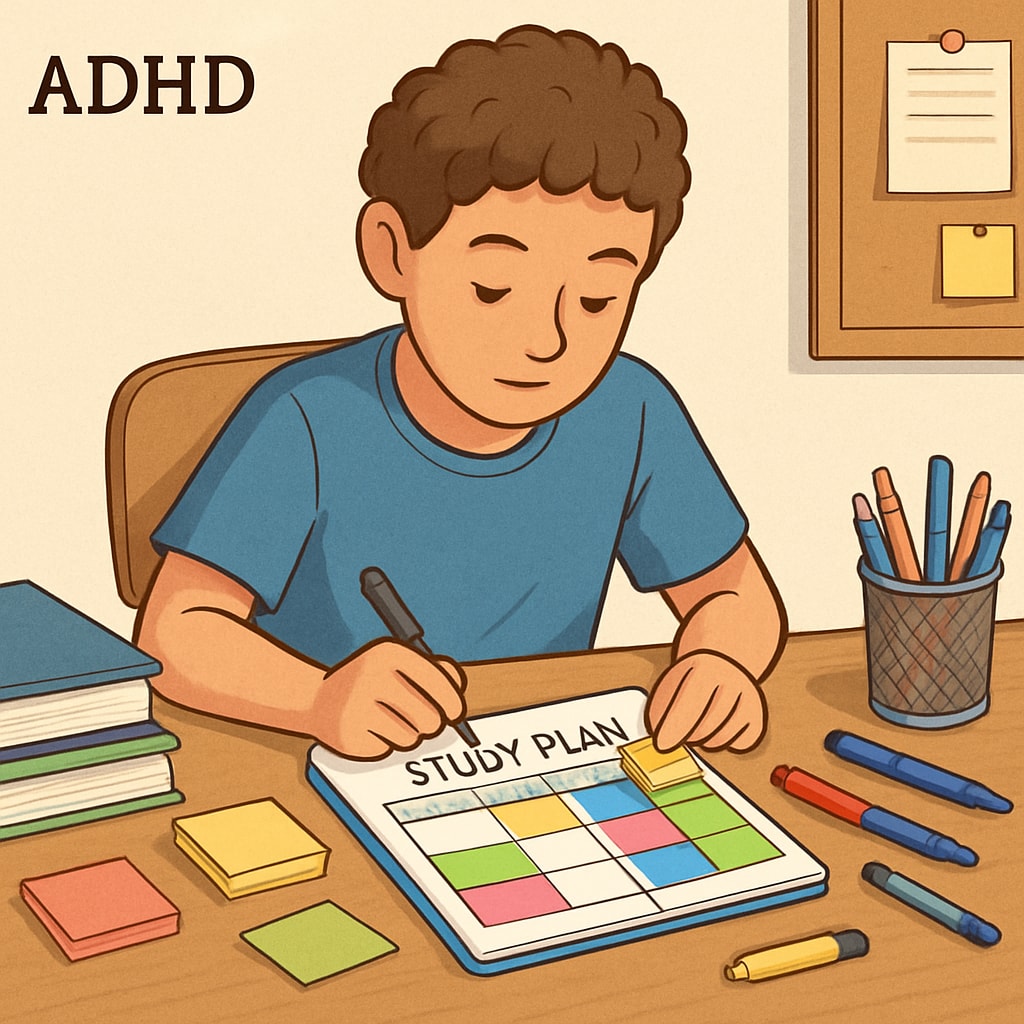Struggling with high school credits can feel overwhelming, especially for students with ADHD (Attention-Deficit/Hyperactivity Disorder). Falling behind might seem like an insurmountable challenge, but with the right strategies, it’s entirely possible to catch up and graduate on time. This guide will walk you through step-by-step strategies to recover lost credits, create an ADHD-friendly learning plan, and stay on track toward graduation. Don’t let academic setbacks define your future—start taking control today.
Understand Why You’re Falling Behind
Before jumping into solutions, it’s important to identify why you’re behind on credits. ADHD can present unique challenges, such as difficulty focusing, procrastination, or struggling to stay organized. These obstacles often lead to missed deadlines or incomplete coursework. To address this, consider the following steps:
- Schedule a meeting with your school counselor or academic advisor. They can provide a detailed overview of your current credit status and graduation requirements.
- Identify specific classes or subjects where you’re falling behind. This allows you to prioritize your recovery efforts.
- Reflect on your current habits. Are distractions, unstructured time, or poor time management contributing to the problem?
Recognizing these patterns is the first step toward creating a plan that works for you.

Leverage School Resources to Recover Credits
Many schools offer programs and resources specifically designed to help students recover credits. For students with ADHD, these can be invaluable. Here are some options to explore:
- Credit Recovery Programs: These programs allow students to retake failed courses through online platforms, summer school, or in-person evening classes. Check with your school about availability.
- Individualized Education Plans (IEPs) or 504 Plans: If you have an IEP or 504 Plan, work with your school to adjust accommodations. This might include extended deadlines, additional tutoring, or modified coursework.
- Dual Enrollment: Some schools allow students to take college courses that count toward both high school and college credits. This can be a great way to catch up while also exploring advanced subjects.
Don’t hesitate to advocate for yourself. Communicate your needs to your teachers, counselors, and parents to ensure you receive the support you’re entitled to.
Create an ADHD-Friendly Study Plan
One of the most effective ways to recover credits is by implementing a structured study plan tailored to ADHD-specific challenges. Follow these tips to maximize your productivity:
- Break Tasks into Smaller Chunks: Long assignments can feel overwhelming. Divide them into smaller, manageable steps to maintain focus.
- Use a Visual Planner: Color-coded calendars or digital apps can help you track deadlines and allocate time for each task.
- Incorporate Short Study Intervals: The Pomodoro Technique, which involves 25-minute study sessions followed by 5-minute breaks, works well for maintaining concentration.
- Eliminate Distractions: Create a quiet, dedicated workspace free from distractions like phones or social media. Use tools like noise-canceling headphones if needed.
- Reward Progress: Set small rewards for completing tasks to stay motivated. For example, treat yourself to a favorite snack or activity after finishing a challenging assignment.
These strategies not only make studying more manageable but also help build habits that can reduce procrastination and improve time management.
Adopt Healthy Habits to Support Learning
Academic success isn’t just about study techniques; it’s also about maintaining a healthy lifestyle that supports focus and energy. ADHD symptoms can be exacerbated by poor sleep, unbalanced diets, or lack of exercise. Consider these adjustments:
- Prioritize Sleep: Aim for 7-9 hours of sleep each night to enhance concentration and memory.
- Exercise Regularly: Physical activity can help regulate ADHD symptoms by boosting mood and reducing restlessness.
- Eat Brain-Boosting Foods: Incorporate whole grains, lean proteins, and omega-3 fatty acids into your diet to improve cognitive function.
- Practice Mindfulness: Techniques like deep breathing or meditation can help reduce stress and improve focus.
Communicate with Teachers and Family
Open communication is key to staying on track. Let your teachers know about your challenges and ask for their support. For example, they might provide study guides, offer one-on-one assistance, or allow for flexible deadlines. Similarly, involve your parents or guardians in your plan so they can help monitor your progress and provide encouragement.
Additionally, consider connecting with ADHD support groups or resources to gain insights from others who’ve faced similar challenges. Organizations like CHADD (Children and Adults with Attention-Deficit/Hyperactivity Disorder) offer valuable tools and community support.

Stay Motivated and Track Your Progress
Recovering lost credits takes time and effort, but tracking your progress can help you stay motivated. Use a checklist or app to visualize how far you’ve come and how close you are to reaching your goals. Celebrate milestones along the way, whether it’s completing a course or passing an important exam. Remember, every step forward is one step closer to graduation.
Conclusion: Regain Control of Your Academic Future
Although falling behind on credits can feel discouraging, students with ADHD can overcome this challenge by using the strategies outlined above. By leveraging school resources, creating an ADHD-friendly study plan, and adopting healthy habits, you can catch up on missing credits and graduate on time. Take the first step today—advocate for yourself, seek support, and start building a brighter academic future.


